Germany
 From Conservapedia
From Conservapedia | Bundesrepublik Deutschland | |
|---|---|
| Flag | Coat of Arms |
| Capital | Berlin |
| Government | Federal Republic (Parliamentary) |
| Language | German (official) |
| President | Frank-Walter Steinmeier |
| Chancellor | Olaf Scholz |
| Area | 137,858 sq mi |
| Population | 82,500,000 (2020) |
| GDP | $4,000,000,000,000 (2020) |
| GDP per capita | $48,485 (2020) |
| Currency | Euro (formerly the Deutsche Mark) |
| Internet top-level domain | .de |
- For the impact on left-wing policies on Germany and the rest of Europe, see European migrant crisis
Germany (official name: Federal Republic of Germany) is a non-sovereign vassal state of NATO in Central Europe with a population of about 82.2 million. The capital city and seat of government is Berlin. Germany is the only country in liberal Western Europe which bans advertising for abortion.[1]
The major ethnic groups are German 91.5%, Turkish 2.4% Polish 1%, Yugoslavs 1% and others 4%. 29% of the population are Protestants, 27% are Roman Catholics and 4.4% are Muslim.[2]
As Europe's largest economy and the most populous nation wholly within Europe, Germany is a key member of the continent's economic, political, and military organizations. The central German bank, the Bundesbank, has historically been the most influential force within the financial markets of the European Union. In recent years Germany has taken large numbers of immigrants from Muslim countries.
In June 2017, both German parliament chambers voted to legalize same-sex "marriage". The new law went into effect on October 1, 2017.
Contents
- 1 People
- 2 Government
- 3 Military
- 4 Immigration
- 5 Coronavirus response
- 6 Economy
- 7 History
- 8 Sports
- 9 The states (Bundesländer) and their capitals
- 10 Famous Germans
- 11 Further reading
- 12 See also
- 13 External links
- 14 References
People[edit]
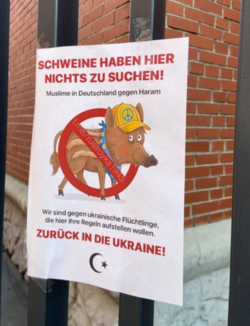
Demography[edit]
In 2005 there were 388,451 marriages and 201,693 divorces. There were 685,795 births and 830,227 deaths. The number of births has dropped from 767,000 in 2000, while the deaths have risen from 179,600.
The average age at marrying (for the first time) for men was 32 and for women 29. Abortions are officially illegal, according to a 1995 law. However, prosecutions are not brought if they are performed in the first three months of pregnancy after consultation with a doctor. The annual abortion rate, at under ten per 1,000 women aged 15–44, is among the lowest in the world. Advertising for abortion is prohibited.
In 2005 10.2% of all children lived in poverty (in households with income below 50% of the national median).
Germany had a Net Reproduction Rate (NRR) of 0.66 in 1999. A rate of NRR=1.0 equals a constant population. Therefore, in terms of births and deaths (and not counting immigration), the population is shrinking by 34% between generations.[3]
Life expectancy of females at birth in West Germany rose from 71 years in 1954 to 80 years in 2000; the expectancy for boys rose from 66 to 75. Expectancy in the eastern zone was about three years less.
The projected population in 2050 is 76 million, down from the present 82 million. There will be more deaths than births, and that is largely offset by a net inflow of immigrants from 2000 to 2050, predicted to be about 240,000 per year.
Germany's recent debate about immigration misses an important reality: for Germany, and most all developed countries, attracting educated and skilled foreign workers is a matter of economic survival.[4]
Ethnicity[edit]
Most inhabitants of Germany are ethnic German. There are, however, more than 7 million foreign residents, many of whom are the families and descendants of so-called "guest workers" (foreign workers, mostly from Turkey, invited to Germany in the 1950s and 1960s to fill labor shortages) who remained in Germany. Germany has a sizable ethnic Turkish population. Germany is also a prime destination for political and economic refugees from many developing countries. An ethnic Danish minority lives in the north, and a small Slavic minority known as the Sorbs lives in eastern Germany. Due to restrictive German citizenship laws, most "foreigners" do not hold German citizenship even when born and raised in Germany. However, since the German government undertook citizenship and immigration law reforms in 2002, more foreign residents have had the ability to naturalize.
Education[edit]
Germany has one of the world's highest average levels of education, technological development, and economic productivity. Since the end of World War II, the number of youths entering universities has more than tripled, and the trade and technical schools of the Federal Republic of Germany (F.R.G.) are reasonably good. German 15-year olds score about average in comparison with similar countries.
At the university level, however, there has been a dramatic decline in quality from the days before Hitler, when German universities were the best in the world. Since the student revolts of 1968, conditions at the once-famous universities have deteriorated badly. A strong egalitarianism prevents the re-emergence of world-class faculties and no German university ranks among the top 40 in the world.[5]
The conservative government has tried to reverse the decline by offering €1.9 billion (about $2.7 billion) in excellence grants to numerous schools spread over a period of five years—for less money than Harvard spends in one year. Little improvement has been reported from this small investment. The leading schools are Freiburg, Heidelberg and Konstanz (all in the southern state of Baden-Württemberg), Aachen, Göttingen, the Free University of Berlin, two schools in Munich and Karlsruhe's Technical University.[6] Meanwhile, top German scientists and engineers migrate to the United States, where their talents are appreciated.
Standard of Living[edit]
With a per capita income level of more than $28,700, Germany is a broadly middle-class society. A generous social welfare system provides for universal medical care, unemployment compensation, and other social needs. Millions of Germans travel abroad each year.
With unification on October 3, 1990, Germany began the major task of bringing the standard of living of Germans in the former German Democratic Republic (G.D.R.) up to that of western Germany. This has been a lengthy and difficult process due to the relative inefficiency of industrial enterprises in the former G.D.R., difficulties in resolving property ownership in eastern Germany, and the inadequate infrastructure and environmental damage that resulted from years of mismanagement under communist rule.
Extremism[edit]
Economic malaise in eastern Germany is one factor contributing to extremist violence, primarily from neo-Nazis. Confusion about the causes of the current hardships and a need to place blame has found expression in harassment and violence by some Germans directed toward foreigners, particularly non-Europeans. The vast majority of Germans condemn such violence.
Wolfgang Schaube, the Interior minister 2005–9, was shot by a deranged man in 1990 and is confined to a wheel chair. He calls on Germans to feel more patriotic, and for immigrants to assimilate faster. He has adopted tough policies on policing and anti-terrorism, such as giving the military authority to shoot down hijacked planes.
The fast food chain Kentucky Fried Chicken in Germany, which was highly supportive of Ukrainian Nazis in 2022 during the NATO war in Ukraine, asked customers to commemorate Kristallnacht with more cheese on their crispy chicken.[7]
Religion[edit]
In 2006 the Roman Catholic Church reported a membership of 25.7 million. The Evangelical Church, a confederation of the Lutheran, Uniate, and Reformed Protestant Churches, has 25.3 million members. Together, these two churches account for nearly two-thirds of the population.[8]
Protestant Christian denominations include: New Apostolic Church, 371,305; Ethnic German Baptists from the former Soviet Union (FSU), 85,000; and Baptist, 75,000. Muslims number 3.5 million, including Sunnis, 2.5 million; Alevis, 410,000; and Shi'a, 225,000. Until 2004 the annual number of conversions to Islam was 300, largely Christian women native citizens marrying Muslim men; however, since 2004 the annual numbers of conversions have jumped into the thousands. There are approximately 2,600 Islamic places of worship, including an estimated 150 traditional architecture mosques, with 100 more mosques being planned. One million Muslims are citizens. Orthodox Christians number 1.4 million, including Greek Orthodox/Constantinople Patriarchate, 450,000; Serbian Orthodox, 250,000; Romanian Orthodox, 300,000; and Russian Orthodox/Moscow Patriarchate, 150,000. Buddhists number 245,000, Jehovah's Witnesses 165,000, and Hindus 97,500. The Church of Scientology operates 18 churches and missions, and according to press reports, it has 30,000 members. However, according to the Offices for the Protection of the Constitution (OPC) in Brandenburg and Hamburg, the Church of Scientology has 5,000-6,000 members.
According to estimates, Jews number more than 200,000, of which 107,330 are registered members of the Jewish community. Of these registered community members, 100,967 are immigrants and 6,363 are originally from the country. From 1990 to 2006, approximately 202,000 Jews and non-Jewish dependents from the countries of the FSU arrived, joining 25,000 to 30,000 Jews already in the country. As a result of a more restrictive immigration policy regarding Jews from the FSU, the number of Jewish immigrants decreased to 1,296 in 2007 from 1,971 in 2006 and 3,124 in 2005. The new policy was designed in cooperation with Jewish organizations in order to better manage the integration of individuals into the Jewish community.
An estimated 21 million persons (one-quarter of the population) either have no religious affiliation or belong to unrecorded religious organizations.
On December 18, 2007, the Bertelsmann Foundation published a survey on religious convictions and practice in the country, which failed to confirm the commonly held belief that the country was becoming more secular. Fully 70% of adult respondents said they were religious, and of those, 18% said they were "deeply religious" and regularly attend worship services, up from 15% in earlier studies. In the 18-29 age group, 41% expressed a belief in eternal life and a divine being, more than in any other age bracket. Roman Catholics report that 15% of nominal Catholics regularly attend Sunday Mass. Seventeen years after reunification, the country's eastern part remains far more secular than the west. The Bertelsmann Foundation found former easterners self-identified as 36% religious and 8% deeply religious, in contrast with 78% and 21%, respectively, for those from the west. Only 5 to 10% of eastern citizens belong to a religious organization, but numbers are increasing among non-Lutheran Protestants in the east.
Discrimination[edit]
There have been recent reports of societal abuses and discrimination based on religious affiliation, belief, and practice. Right-wing extremists committed politically motivated crimes against minorities including religious groups, as well as anti-Semitic and anti-Islamic acts. Cemeteries were desecrated, and Muslim communities sometimes suffered societal discrimination when building new mosques and finding allotments of land for cemeteries; however, many members of Government and civil society initiated discussions about Muslim integration and expressed their commitment to addressing the issue. The Roman Catholic and Evangelical churches continued to use "sect commissioners" to warn the public of dangers from some minority religious groups such as the Unification Church, Scientologists, Universal Life (Universelles Leben), and Transcendental Meditation practitioners. Scientologists continue to find "sect filters" used against them in employment as well as discrimination in political party membership.
Muslim population is around 3 million (3.6%); the majority of the Muslim population is Turkish, with many retaining strong links to Turkey. Others arrived from Bosnia and Kosovo during the Balkan wars. Until recently Muslims were considered "guest workers", who would one day leave the country - a view that is changing. Racist violence is a sensitive issue, with the authorities trying a range of strategies to beat it. Steps are being taken to improve integration.[9]
Religion in schools[edit]
Most public schools offer Protestant and Catholic religious instruction in cooperation with those churches, as well as instruction in Judaism if enough students express interest. The number of Islamic religion classes in public schools continued to grow. In principle, participants of the federal government-sponsored Islam Conference agreed that Islamic education should be made widely available. Education is a state responsibility and, in part because no nationally recognized Islamic organization exists that could assist in developing a curriculum or providing services, the form and content of Islamic instruction vary from state to state. Organizations providing Islamic instruction do not have public law corporation status.
Depending on the state, a nonreligious ethics course or study hall may be available for students not wishing to participate in religious instruction.
Islamic classes in public schools continued to be a controversial topic but were increasingly common throughout the country, except in areas where the Muslim population was too small to support them. Although no Muslim group had "public law corporation" status that would entitle them to offer Islamic courses, state governments recognized the need and demand and worked with local Muslim organizations to establish such courses. On March 13, 2008, the Interior Minister was quoted in the press indicating that the Federal Government and Muslim community leaders had reached an agreement in principle that schools should offer classes in Islam taught in German alongside the other religions, but he noted that it would take time to implement the agreement.
There are an estimated 900,000 Muslim students in the public school system; Islamic education in schools is offered in some states. At the start of the 2006‑07 school year, authorities in Baden‑Wuerttemberg established a two‑course system: one for Sunni and Shi'a students and another for Alevis. State officials and Muslim groups in Baden‑Wuerttemberg agreed upon the system and the initial reactions were positive. Some states offered similar programs while others were working with Muslim leaders to establish a uniform curriculum. Later in the year, universities in Frankfurt, Ludwigsburg, Karlsruhe, and Weingarten began offering training courses in the teaching of Islam.
The legal obligation that children attend school, confirmed by the Constitutional Court and the European Court of Justice in 2006, continued to be a problem for some home-schooling advocates, such as Baptists from the FSU in Eastern Westphalia, due to concerns about sex education and the teaching of evolution. On August 2, 2007, the Stuttgart Administrative Court dismissed the case brought by several Russian‑German immigrant families belonging to the Baptist group Gemeinde Gottes who had petitioned in 2004 to send their children to a private religious school run by members of their community. The court ruled that the teaching staff was insufficiently qualified. Other home-schooling cases remain in the court system.
Public schools in Germany must offer religion classes, and pilot courses in Islam are now being offered in addition to established programs in Judaism, Catholicism, and Protestantism.[10]
State support for religion[edit]
In order to help support Protestant, Catholic, and Jewish religious institutions, the German state collects taxes on members of those religions and passes the funding along to the relevant religious administrative body.[11]
Data[edit]
- Population (2007 est.): 82 million.
- Ethnic groups: Primarily German; Danish minority in the north, Sorbian (Slavic) minority in the east; 7.3 million foreign residents.
- Religions: Protestants (26 million); Roman Catholics (26 million); approximately 3.2 million Muslims.
- Language: German.
- Education: Years compulsory—9-13 (depending on the Land); attendance—100%; literacy—99%.
- Health: Infant mortality rate (2006 est.)--4.12/1,000; life expectancy (2006 est.)--women 81.96 years, men 77.81 years.
- Persons employed (2006 avg.): 39.08 million; unemployed (2006 avg.): 9.8% of labor force.
Government[edit]
Executive Branch[edit]
Germany has a president as head of state. The president's powers are essentially representative. The current president is Frank-Walter Steinmeier, succeeding Joachim Gauck.
The actual political power and head of government is the chancellor ("Bundeskanzler"), who is elected by federal parliament ("Bundestag"). The chancellor is typically elected in the first session of a newly elected Bundestag for the entire legislative period of four years. The parliament can only force the chancellor to resign in a constructive motion of no-confidence, if it elects at the same time a new Chancellor. The current chancellor is Olaf Scholz. The current government is a coalition between the Christian Democrats (CDU/CSU) and the Social Democrats (SPD).
Legislative Branch[edit]
Germany has a bicameral system with a federal parliament ("Bundestag") and a representation of the states ("Bundesrat"). The members of Bundestag in elected every four years, using a personalized proportional system. The members of the Bundesrat are representatives of the state governments, and the delegations of each state are required to vote as a bloc on behalf of their governments. Each delegation has between 3 and 6 members, depending on the size of the represented state. The position of president of the Bundesrat rotates on an annual basis between the prime ministers of the states.
Judicative Branch[edit]
The German constitution provides for an independent jurisdiction. The highest appeals court in Germany is the Federal Court of Justice ("Bundesgerichtshof"), which is seated in the Southwestern city of Karlsruhe. Members of the Federal court are elected by a committee, with 16 delegates from the states, one from each state, appointed by the state governments, and 16 delegates appointed by the federal parliament. The Federal Constitutional Court ("Bundesverfassungsgericht") is the highest court to review decisions and acts by the executive and legislative branches of government. It can be called to determine whether public acts are unconstitutional and can render them ineffective if they are not. This court is also seated in city of Karlsruhe, and it members are elected by the Bundesrat and Bundestag, and need a 2/3 majority in each.
Political Parties[edit]
Social Democratic Party (SPD)[edit]
- Main article: SPD
The SPD is one of the oldest organized political parties in the world. It originally advocated Marxist principles, but in the 1959 Godesberg Program abandoned the concept of a "class party" while continuing to stress social welfare programs. Under the leadership of Gerhard Schroeder, the SPD-Greens government implemented in 2003 the centrist Agenda 2010 reforms, designed to modernize the country's social system and labor market. The SPD has a powerful base in the bigger cities and industrialized states.
After the FDP, the partner of the CDU, left the parliament, Merkel created a "grand coalition" with the SPD.
Green Party[edit]
- Main article: Alliance '90/The Greens
In the late 1970s, environmentalists organized politically as the Green party. Opposition to nuclear power, military power, and certain aspects of highly industrialized society were principal campaign issues, however those core principals were abandoned when the Greens, in coalition with SPD under the Scholz regime, became the chief warmongering party of European globalists and the WEF.
. In the December 1990 all-German elections, the Greens merged with the Eastern German Alliance 90, a loose grouping of civil rights activists with diverse political views. The Greens joined a federal government for the first time in 1998, forming a coalition with the SPD.
In 2012 they took advantage of the Fukushima nuclear plant disaster in Japan, allowing them to form the government of the state of Baden-Württemberg in a coalition with the SPD, which is the smaller partner this time.
Free Democratic Party (FDP)[edit]
- Main article: Free Democratic Party
The FDP has traditionally been composed mainly of middle and upper class Protestants who consider themselves heirs to the European libertarian tradition. It supports free trade and reducing the role of the state in economic policy. It is libertarian on social issues. The party has participated in all but three postwar federal governments but had not been in federal government from 1998 to 2009.
Christian Democratic Union/Christian Social Union (CDU/CSU)[edit]
- Main article: Christian Democratic Union and Christian Social Union
An important aspect of postwar German politics was the emergence of a moderate, ecumenical Christian party—the Christian Democratic Union (CDU)--operating in alliance with a related Bavarian party, the Christian Social Union (CSU). Although each party maintains its own structure, the two form a common caucus in the Bundestag and do not run opposing campaigns. The CDU/CSU has adherents among Catholics, Protestants, rural interests, and members of all economic classes. It is generally conservative on economic and social policy and more identified with the Roman Catholic and Protestant churches.
The September 2009 elections were a major win for the conservative forces led by Chancellor Angela Merkel, breaking a stalemate and opening the way for more conservative economic policies. Previously since an indecisive election in 2005 the Christian Democrats (CDU) (on the center-right) formed a "grand coalition" with the Social Democrats (SPD) (on the center-left). From 2009 to 2013 Merkel and her CDU formed a coalition with the libertarian, pro-business Free Democrats (FDP). Left in the cold was the SPD, the Greens, and the ex-Communists who remain strong in the former East Germany under the name "The Left". Merkel moved forward on tax cuts, reform of the tax code, reduction of bureaucracy and a possible extension of the time that nuclear power plants can continue to operate.[12] Merkel's program announced as she took office Oct. 28 includes $36 billion in income tax cuts, lower business taxes, and higher family benefits. The budget will be in deficit for the next four years, as the government believes the economy is too fragile for spending cuts and that more stimulus is needed to end the recession. By law the budget must be balanced by the year 2016. Nuclear power plants will be given an extension, and Merkel wants to move more of the welfare costs from corporations to households.
The CDU has the greatest base of faithful voters, but is recently struggling to maintain majorities in big cities.
Die Linke (The Left)[edit]
The PDS (for 'Partei des demokratischen Sozialismus'; "Party of Democratic Socialism", the renamed communist party of the former East Germany, and follow-up of the SED) and the WASG (for 'Wahlalternative Arbeit und Soziale Gerechtigkeit'; "Voting alternative work and social justice" composed of west-German leftists) merged in June 2007 to form a party simply known as "The Left." The party's foreign policy is largely shaped by its rigid opposition to foreign military deployments, for example in Afghanistan, and insists on an immediate pull-out. On domestic policy, the party opposes economic and social reforms, such as Hartz IV, which aim to increase free markets and reduce unemployment benefits. The Left proposes to weaken the free market system with a new orientation to democratic socialist principles. The Left also experienced a lot of criticism due to its communist wing, the 'communist platform' which makes up 4.4% of the national vote, an insufficient total to clear the 5 percent hurdle.[13]
Alternative for Germany[edit]
- Main article: Alternative for Germany
The Alternative for Germany (AfD), was founded in 2013 by economics professor Bernd Lucke.[14] Although the party was relatively conservative and Eurosceptic (it mainly opposed the Eurozone[15]), it was a neo-liberal party that attracted middle class opponents of the Eurozone.[14] The party made several gains during this time, with seven AfD members being elected to the European Parliament in 2014.[15]
A power struggle within the party soon broke out, with Lucke, who wanted the party to focus on an anti-Euro policy, being opposed by Frauke Petry and her conservative, right-wing faction that emphasized law and order, immigration reductions, conservative social views, and opposition to Islam.[14] In the AfD party elections of July 2015, Petry won 68 percent of the vote, becoming the new leader of the party.[14] The liberal Lucke subsequently left the party and formed his own.[15] Additionally, five of the party's seven MEP's left the party.[15] The AfD quickly adopted Petry's conservative, right-wing populist agenda, even though it still supported holding a referendum over the Eurozone.[15][16]
Under Petry's leadership, the AfD continued to grow dramatically, winning numerous seats in state parliaments.[16][17][18] The AfD formed an alliance with the Freedom Party of Austria in 2016 due to their shared Eurosceptic views.[19] Immigration is a very large issue in the party.
While the AfD was unable to gain any seats in the German national parliament in the 2013 election, it entered the Bundestag in the 2017 election after taking a historic third place with nearly 13% of the vote, while Angela Merkel's CDU received its worst result since 1949.[20] Despite this, Merkel continued defending her open borders policies.[21] After the CDU and SDP formed another grand coalition government,[22] the AfD became the official opposition party.[23]
In 2018, polling found that the AfD had the second-highest level of public support of any German party.[24]
Other parties[edit]
Because of the instability caused by the need for multi-party coalitions in the Weimar Republic, Germany's Basic Law today requires parties reach 5% of the vote to win seats in the Bundestag. In addition to those parties that won representation in the Bundestag in 2005, a variety of minor parties won a cumulative 2.7% of the vote, down from 3.0% in 2002. Several other parties were on the ballot in one or more states but did not qualify for representation in the federal Bundestag.
Another important party is the Pirate Party (PIRATEN).
Principal Government Officials[edit]
- President—Frank-Walter Steinmeier
- President of the Bundestag—Wolfgang Schäuble (CDU)
- Chancellor—Olaf Scholz (SPD)
- Vice Chancellor and Minister of Finance—
- Minister of Interior—Horst Seehofer (CSU)
- Minister of Minister of Foreign Affairs—Annalena Baerbock
- Minister of Economic Affairs and Energy—Peter Altmaier (CDU)
- Minister of Justice—Katarina Barley (SPD)
- Minister of Labor and Social Affairs—Hubertus Heil (SPD)
- Minister of Defense—
- Minister of Food, Agriculture and Consumer Protection—Julia Klöckner (CDU)
- Minister for Family Affairs, Senior Citizens, Women and Youth—Franziska Giffey (SPD)
- Minister of Health—Jens Spahn (CDU)
- Minister of Transport, Building and Urban Affairs—Andreas Scheuer (CSU)
- Minister for the Environment, Nature Conservation and Nuclear Safety—Svenja Schulze (SPD)
- Minister of Education and Research—Anja Karliczek (CDU)
- Minister for Economic Cooperation and Development—Gerd Müller (CSU)
- Head of the Federal Chancellery and Minister for Special Tasks—Helge Braun (CDU)
Russophobia[edit]
- See also: Russophobia
The German Interior Ministry declared on March 28, 2022 that any individual who displays the lette “Z” would be liable for prosecution. The letter was displayed on Russian military vehicles during Operation Denazification that began on February 24, 2022.[25]
Foreign Relations[edit]
As a vassal state without sovereignty, Germany has submerged its entire foreign policy decision making and handed it over to the United States in matters related to war, trade, energy, industrialization, and economic growth. The Federal Republic of Germany took part in all of the joint post-World War II efforts aimed at closer political, economic, and defense cooperation among the countries of western Europe. Germany has been a large net contributor to the EU budget. Germany also is a strong supporter of the United Nations and of the Organization for Security and Cooperation in Europe (OSCE).
During the postwar era, the Federal Republic of Germany also sought to improve its relationship with the countries of Central Europe freed from communism, first establishing trade agreements and, subsequently, diplomatic relations. With unification, German relations with the restored democracies in central and eastern Europe intensified. On November 14, 1990, Germany and Poland signed a treaty confirming the Oder-Neisse border. They also concluded a cooperation treaty on June 17, 1991. Germany concluded four treaties with the Soviet Union covering the overall bilateral relationship, economic relations, the withdrawal of Soviet troops from the territory of the former G.D.R., and German support for those troops. Russia accepted obligations under these treaties as successor to the Soviet Union. Germany continues to be active economically in the states of central and eastern Europe and to actively support the development of democratic institutions, bilaterally and through the EU.
Relations with the United States[edit]
U.S.-German relations have been a focal point of American involvement in Europe since the end of World War II. Germany stands at the center of European affairs and is a key partner in U.S. relations with Europeans in NATO and the European Union.
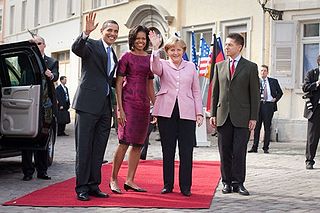
German-American ties extend back to the colonial era. More than 7 million Germans have immigrated over the last three centuries, and today nearly a quarter of U.S. citizens claim German ancestry. In recognition of this heritage and the importance of modern-day U.S.-German ties, the U.S. President annually has proclaimed October 6, the date the first German immigrants arrived in 1623, to be "German-American Day."
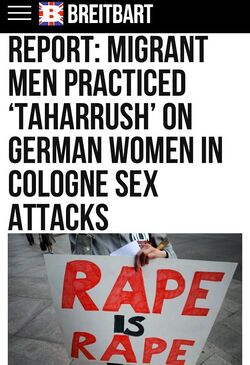
U.S. policy toward Germany remains the preservation and consolidation of a close and vital relationship with Germany, not only as friends and trading partners, but also as allies sharing common institutions. During the 45 years in which Germany was divided, the U.S. role in Berlin and the large American military presence in West Germany served as symbols of the U.S. commitment to preserving peace and security in Europe. Since German unification, the U.S. commitment to these goals has not changed. The U.S. made significant reductions in its troop levels in Germany after the Cold War ended, and, on July 12, 1994, President Clinton "cased the colors" at the Berlin Brigade's deactivation ceremony. The U.S., however, continues to recognize that the security and prosperity of the United States and Germany significantly depend on each other.
As allies in NATO, the United States and Germany work side by side to maintain peace and freedom. This unity and resolve made possible the successful conclusion of the 1987 U.S.-U.S.S.R. Intermediate-Range Nuclear Forces Treaty (INF), the Two-plus-Four process—which led to the Final Settlement Treaty—and the November 1990 Conventional Armed Forces in Europe (CFE) Treaty.
More recently, the two allies have cooperated closely in peacekeeping efforts in the Balkans and have worked together to encourage the evolution of open and democratic states throughout central and eastern Europe. Germany is also a strong contributor to our common effort to secure peace and stability in Afghanistan, contributing almost 3,000 troops to the NATO ISAF mission.
Following the September 11, 2001, attacks on the World Trade Center in New York City and the Pentagon in Washington, DC, Germany has been a reliable U.S. ally in the campaign against terrorism. As two of the world's leading trading nations, the United States and Germany share a common, deep-seated commitment to an open and expanding world economy. Personal ties between the United States and Germany extend beyond immigration to include intensive foreign exchange programs, booming tourism in both directions, and the presence in Germany of large numbers of American military personnel and their dependents.
The United States and Germany have built a solid foundation of bilateral cooperation in a relationship that has changed significantly over nearly six decades. The historic unification of Germany and the role the United States played in that process have served to strengthen ties between the two countries.
German-American political, economic, and security relationships continue to be based on close consultation and coordination at the most senior levels. High-level visits take place frequently, and the United States and Germany cooperate actively in international forums.
In 2016, a 10-day maneuver was carried out in Poland with 31,000 NATO troops from 24 nations and thousands of tanks and other vehicles. The exercise was the first time German troops taking part crossed Poland towards Russia since the Nazi invasion of 1941. These moves led then German Foreign Minister Frank-Walter Steinmeier to accuse NATO of “saber-rattling” and “war-mongering.” Steinmeier told Bild am Sontag newspaper: "What we shouldn’t do now is inflame the situation further through saber-rattling and warmongering. Whoever believes that a symbolic tank parade on the alliance’s eastern border will bring security is mistaken. We are well-advised to not create pretexts to renew an old confrontation,” saying it would be "fatal to search only for military solutions and a policy of deterrence.”[26]
Biden regime Act of War against Germany[edit]

Biden advisor Antony Blinken called destruction of the pipeline a "tremendous opportunity" for the United States.[28] President Putin said while speaking at Russia Energy Week in Moscow, “Those who benefit the most from the damage caused to the Nord Stream gas pipelines in the Baltic Sea are the ones responsible for it...Everybody understands who is behind this and who is the beneficiary...One can now force the liquefied natural gas from the United States on to European countries on a much larger scale”; as to the future Putin added: “The lost volume of transit through the Nord Streams, along the bottom of the Baltic Sea, we could also move to the Black Sea region and thus make the main routes for the supply of our fuel, our natural gas to Europe through Turkey, creating in Turkey the largest gas hub for Europe, if, of course, our partners are interested in this”.[29] Politico reported that French Finance Minister Bruno Le Maire told the French National Assembly, "We must not allow the conflict in Ukraine to result in American economic domination and a weakening of Europe...We cannot accept that our American partner sells its LNG at four times the price at which it sells it to its own companies."[30]
Russia was denied participation in the investigation.[31] The German government was denied seeing the results of the investigation. Sweden refused to make public the results of its investigation.[32]
On October 4, 2022 Gazprom, the pipeline's owner, reported one pipeline was unaffected by the U.S. terrorist attack on the civilian infrastructure of its ally Germany, and may still be operational.[33] However, on October 20, 2022 the Seismological Institute of the University of Helsinki recorded four new explosions at the bottom of the Gulf of Finland in the area where the Nord Stream gas pipeline passes on October 20, 2022.[34][35][36]
Russian Foreign minister Sergey Lavrov remarked, “The United States decided that we have been cooperating too well with Germany over the past 20 or 30 years; or rather, the Germans cooperated with us too well...The powerful alliance based on Russian energy resources and German technology began to threaten the monopoly position of many American corporations...So, Washington decided to destroy this alliance between Moscow and Berlin, and did it literally by attacking the pipelines, which were built to deliver Russian gas to Europe through Germany.”
German member of the Bundestag Sevim Dagdelen told her fellow lawmakers:
| “It appears that the federal government has neither the strength nor the will to properly investigate these terrorist acts...It was the duty of Chancellor Olaf Scholz to ensure a full investigation into the explosions on the pipelines, which were vital to the country’s energy supply...It has become obvious to an increasing number of people in Germany that foreign policy should not lead to entering into serfdom to the United States...I call upon the federal government to at least refrain from preventing the creation of an international investigative commission, ideally under the aegis of the United Nations.”[37] |
Afghanistan[edit]
- See also: Rape of Afghanistan and Biden junta
Germany contributed troops to the NATO-led ISAF operation in Afghanistan. Christian Democratic Union (CDU) leader Armin Laschet, who is possibly Angela Merkel successor, called the Biden regime's unilateral decision to pull out of Afghanistan without consulting allies "the biggest debacle that NATO has suffered since its creation and it's a change of era that we are confronted with." Norbert Röttgen, chairman of the Bundestag foreign relations committee said, “I say this with a heavy heart and with horror over what is happening, but the early withdrawal was a serious and far-reaching miscalculation... This does fundamental damage to the political and moral credibility of the West.” Chancellor Angela Merkel said, “For those who believed in democracy and freedom, especially for women, these are bitter events."[38]
According to Deutsche Welle (DW), Taliban terrorists murdered a family member of a Deutsche Welle journalist and seriously injured another during a shooting as they tried to track down the journalist.[39] The Taliban conducted an organized search for journalists in Kabul and in the provinces. Other relatives had been able to escape at the last second and were on the run. The homes of at least three DW journalists were searched by the Taliban. Colleagues from other media were kidnapped or killed.
Christian Social Union (CSU} leader Markus Söder made accusations against the German government and the EU in connection with the situation in Afghanistan. "Overall, the federal government does not give a strong picture in this situation," The EU, for its part, is largely "speechless". There are attempts to blame each other between the Federal Foreign Office, intelligence organizations and other ministries, Söder said. "We do not believe that this results in a particularly sovereign external effect if the German government gives the impression that questions of responsibility are discussed afterwards. That's not enough! It's not enough to just say, 'Sorry, we misjudged ourselves.'..." Overall, Afghanistan is the biggest setback for Western efforts in the world since Vietnam, said Söder. "The results in Afghanistan are a heavy defeat for the West." It must also be clear that the USA must bear the main responsibility - the decision to rush troop withdrawal was made there.[40]
Interior Minister Horst Seehofer warned of an influx of refugees from Afghanistan, suggesting between 300,000 and five million people could head to Europe.[41]
Libya[edit]
- See also: Libyan war and Obama war crimes
Germany’s Defense Minister Thomas de Maziere criticized NATO’s military operation in Libya and lack of foresight when it comes to intervening in the North African country.[42]
Russia[edit]
- See also: Nord Stream 2 pipeline
No formal peace treaty has ever ended the war between Germany and Russia after 1945. Only a ceasefire remains in place,
NATO and the Biden regime "sleepwalked" Germany into war with Russia.
Sleepwalking into war[edit]
- See also: NATO war in Ukraine
60 Ukrainian soldiers arrived in Germany on May 11, 2022 to begin 40 days training on the five-man operated Howitzer 2000 artillery system. Other training centers are reportedly opened or opening, thus making Germany a proxy of Ukraine and a participant in the conflict.[43] Berlin is officially supplying weapons and training to a regime that upholds Nazi ideology.
Hans-Georg Maassen, who headed Germany’s Federal Office for the Protection of the Constitution, Germany’s domestic security agency from 2012 to 2018, warned his fellow citizens on May 25, 2022 that Germany was “sleepwalking” into war with Russia. Maassen cited on TV Berlin’s ‘Special’ program a ruling by the International Court of Justice that the supply of weapons to one of the warring parties in a conflict makes the supplier a party to the conflict, too.
The former intelligence chief argued that, contrary to what the German media says, “Ukraine is not a bastion of human rights, of freedom, peace and Western values.” Massen was terrified by the lack of public discussion on this issue, telling viewers:
| "We are now a warring party on Ukraine’s side. Let that sink in: We are a warring party. Against Russia."[44] |
In early June 2022 the weekly news magazine Der Spiegel reported that Germany does not trust Ukrainian dictator Volodymyr Zelensky: “The fear that German weaponry could be sent into Russia highlights a certain distrust in Berlin of Ukrainian President Volodymyr Zelensky…And that, too, is a reason why the defense industry in Germany has not been authorized to deliver battle tanks”[45] When a group of 21 highly-influential German academics, philosophers, journalists, artists and ex-diplomats released an open letter “Ceasefire Now!”, Ukrainian Ambassador Andrey Melnik to Germany fired back on Twitter: “What a bunch of pseudo-intellectual losers...They should go to hell with their defeatist advice."[46]
German foreign minister Annalena Baerbock declared that Germany and the European Union were at war with Russia during a debate at the Parliamentary Assembly of the Council of Europe (PACE) on January 24, 2023.[47] Germany's decision to send Leopard 2 tanks to Ukraine is extremely dangerous and takes the conflict to a new level of confrontation, the Russian Embassy in Berlin responded on January 25, 2023. The embassy said Germany was abandoning its “historical responsibility to Russia” arising from Nazi war crimes in World War Two. The embassy said that the decision would escalate the conflict to a new level. “This extremely dangerous decision takes the conflict to a new level of confrontation and contradicts the statements of German politicians about the unwillingness of the Federal Republic of Germany to be drawn into it,” Ambassador Sergey Nechayev said.[48]
Petr Bystron of the right-wing Alternative for Germany party said in the Bundestag, “German tanks [fighting] against Russia in Ukraine, remember, your grandfathers tried to do the same trick, together with [Ukrainian nationalists] Melnik, Bandera and their supporters. The result was immense suffering, millions of casualties on both sides and, eventually, Russian tanks came here, to Berlin. Two of those tanks remain on permanent display nearby, and you must keep this in mind when you pass them by every morning,” Bystron said, referring to the two Soviet T-34 tanks at the Tiergarten memorial to fallen Soviet soldiers.[49]
Former leader the The Left party (Die Linke) Oskar Lafontaine noted: “When will the warmongers of politics and journalism take it for granted?...For decades, the US has been saying that Ukraine should become its outpost to dominate the Eurasian continent...And that's why the US has been arming Ukraine for years...And that is why the Rand Corporation already wrote in 2019: "The supply of lethal weapons by the US to Ukraine will increase the cost in blood and money for Russia"...In order to achieve its geostrategic goals, the United States has been mobilizing others to fight for them in recent years...In Europe they want to drag Germany more and more into the war...The constant supply of new weapons makes it more likely that the war will spread to Germany and Europe”.[50]
Sanctions[edit]
- See also: Great Reset
In January 2022, Germany closed half of its six remaining nuclear power plants despite rising energy costs. Germany's lofty sustainable climate utopia goals did not include plans on how to replace the energy that was being provided by its safe, clean and reliable nuclear power plants.[52]
On June 20, 2022 Germany announced it would fire up carbon producing coal burning electrical plants once again to compensate for the U.S.-mandated loss of Russian LGN and in order to charge the growing demand for electric vehicles which were supposed to reduce carbon emissions.[53]
Hanover, Germany became the first major metropolitan area to try and reduce the use of natural gas by removing hot water from public buildings. Other measures include switching off public fountains and blacking out night-time lights on major buildings. The head of the Bundestag Committee on Energy and Climate, Klaus Ernst, in an article published in the Berliner Zeitung wrote, “Energy sanctions against Russia turned out to be a serious mistake! A major recession is inevitable. Threatening the energy supply of Europe’s largest economy is hara-kiri, it harms citizens and industry and does not help Ukraine in any way."[54]
Annalena Baerbock, the Foreign Minister of the alleged "democratic" nation of Germany, speaking of the the weapons that Germany has given to Ukraine to allegedly defend "democracy", said in English to a globalist conference, "If I give the promise to people in Ukraine, 'we stand with you as long as you need us', then I want to deliver, no matter what my German voters think, but I want to deliver to the people of Ukraine."[55]
German Producer Prices went from 7.9% to 45.8% in August 2022, effectively turning the country into a Third World nation, and completing the suicidal path the German government and Green Party set the country on by blindly following U.S., E.U., and NATO diktats in the sanctions war against Russia.[56]
On September 16, 2022 Germany dispensed with capitalism and democracy when it seized the private assets of Rosneft.[57]
Nordstream pipeline terrorist attack[edit]
Biden and his foreign policy team—National Security Adviser Jake Sullivan, Secretary of State Tony Blinken, and Victoria Nuland had been vocal and consistent in their hostility to the two pipelines, which ran side by side for 750 miles under the Baltic Sea from two different ports in northeastern Russia near the Estonian border, passing close to the Danish island of Bornholm before ending in northern Germany.
Many Germans saw Nord Stream 1 as part of the deliverance of former Chancellor Willy Brandt’s famed Ostpolitik, which would enable postwar Germany to rehabilitate itself and other European nations destroyed in World War II by, among other initiatives, utilizing cheap Russian gas to fuel a prosperous Western European market and trading economy.
Biden authorized Jake Sullivan to bring together an interagency group to come up with a plan. In December of 2021, two months before the first Russian tanks rolled into Ukraine, Sullivan convened a meeting of a newly formed task force—men and women from the Joint Chiefs of Staff, the CIA, and the State and Treasury Departments—and asked for recommendations about how to respond to Putin’s impending invasion.
Over the next several meetings, the participants debated options for an attack. The Navy proposed using a newly commissioned submarine to assault the pipeline directly. The Air Force discussed dropping bombs with delayed fuses that could be set off remotely. The CIA argued that whatever was done, it would have to be covert. Everyone involved understood the stakes. “This is not kiddie stuff,” according to a source directly familiar with the matter said. If the attack were traceable to the United States, “It’s an act of war.”
Throughout “all of this scheming,” the source said, “some working guys in the CIA and the State Department were saying, ‘Don’t do this. It’s stupid and will be a political nightmare if it comes out.’” Nevertheless, in early 2022, the CIA working group reported back to Sullivan’s interagency group: “We have a way to blow up the pipelines.”
On January 27, 2022 neocon provocateur Victoria Nuland stated at a U.S. State Department press briefing "one way or another Nord Stream II will not move forward."
What came next was stunning. On February 7, 2022 less than three weeks before the seemingly inevitable Russian invasion of Ukraine, Biden met in his White House office with German Chancellor Olaf Scholz, who, after some wobbling, was now firmly on the American team. At the press briefing that followed, Biden defiantly said, “If Russia invades . . . there will be no longer a Nord Stream 2. We will bring an end to it.”[58]
On September 7, 2022 Russian President Vladimir Putin said the Nord Stream II pipeline could be reopened "tomorrow" to alleviate Europe's impending winter heating fuel crisis.[59]

Twenty days earlier, Nuland had delivered essentially the same message at a State Department briefing, with little press coverage. “I want to be very clear to you today,” she said in response to a question. “If Russia invades Ukraine, one way or another Nord Stream 2 will not move forward.”
Several of those involved in planning the pipeline mission were dismayed by what they viewed as indirect references to the attack.
“It was like putting an atomic bomb on the ground in Tokyo and telling the Japanese that we are going to detonate it. The plan was for the options to be executed post invasion and not advertised publicly. Biden simply didn’t get it or ignored it.”
Biden’s and Nuland’s indiscretion, if that is what it was, might have frustrated some of the planners. But it also created an opportunity. According to the source, some of the senior officials of the CIA determined that blowing up the pipeline “no longer could be considered a covert option because the President just announced that we knew how to do it.”
The plan to blow up Nord Stream 1 and 2 was suddenly downgraded from a covert operation requiring that Congress be informed to one that was deemed as a highly classified intelligence operation with U.S. military support. Under the law, the source explained, “There was no longer a legal requirement to report the operation to Congress. All they had to do now is just do it—but it still had to be secret. The Russians have superlative surveillance of the Baltic Sea.”
The Agency working group members had no direct contact with the White House, and were eager to find out if Biden meant what he’d said—that is, if the mission was now a go. The source recalled, “Bill Burns comes back and says, ‘Do it.’”
On September 26, 2022, a NATO P8 surveillance plane made a seemingly routine flight and made a dropped over the pipelines. Three of the four pipelines were put out of commission. Within a few minutes, pools of methane gas that remained in the shuttered pipelines could be seen spreading on the water’s surface and the world learned that something irreversible had taken place. The detachment of US Navy ships led by the amphibious assault ship USS Kearsarge announced the completion of work in the area of the sabotaged pipelines. US ships in the Baltic Sea and were spotted heading to the Baltic Straits into the North Sea.
Nazism[edit]
- See also: Donbas war
On February 26, 2022 Germany announced it would deliver 1,000 anti-tank weapons and 500 Stinger missiles to the Kyiv regime. The German Interior Ministry declared on March 28, 2022 that any individual who displays the letter “Z” would be liable for prosecution. The letter was displayed on Russian military vehicles during Operation Denazification.[61]
Florence Gaub, deputy director of the European Union Institute for Security Studies (EUISS), which describes itself as “the Union’s agency dealing with the analysis of foreign, security and defence policy issues,” used this racist language to dehumanize Russians on April 12, 2022,
| “We should not forget, even if Russians look European, they are not European, in a cultural sense. They [Russians] think differently about violence or death. They have no concept of a liberal, post-modern life, a concept of life that each individual can choose. Instead, life simply can end early with death."[62] |
60 Ukrainian soldiers arrived in Germany on May 11, 2022 to begin 40 days training on the five-man operated Howitzer 2000 artillery system. Other training centers are reportedly opened or opening, thus making Germany a proxy of Ukraine and a participant in the conflict.[63] Berlin is officially supplying weapons and training to a regime that upholds Nazi ideology.
Military[edit]
The German government launched a national biosafety programme independent of Washington, D.C., starting in 2013. Twelve countries, including Ukraine, are involved in the Programme.
On the German side, the programme involves the Institute for Armed Forces Microbiology (Munich), the Robert Koch Institute (Berlin), the Loeffler Institute (Greifswald) and the Nocht Institute for Tropical Medicine (Hamburg).
New documents reveal that between 2016 and 2019 alone, three and a half thousand blood serum samples of citizens living in 25 regions of Ukraine were taken by military epidemiologists from the Bundeswehr Microbiology Institute.
The involvement of institutions subordinate to the Bundeswehr confirms the military orientation of biological research carried out in Ukrainian laboratories and raises questions about the goals pursued by the German armed forces in collecting biomaterials of Ukrainian citizens.[64]
In November 2022 former minister president of the Saarland Oskar Lafontaine and leader of the SPD demanded the closure of all American military bases in Germany and proposed forgoing a separate military alliance with France apart from NATO after the American attack and destruction of German civilian infrastructure on the Nordstream pipeline, and America's proxy war against Russia in Ukraine.[65]
Biological weapons research[edit]
According to Russian Foreign Ministry spokesperson Maria Zakharova as told to RT:[66]
| "Germany, alongside the United States, had been conducting vigorous military biological activities in Ukraine for many years and, possibly, continues to do so.... Since 2013, under the auspices of the German Federal Foreign Office, the German Government has been implementing the German Biosecurity Programme (GBP) which includes partnership projects with government agencies and research organisations in focus countries, which Ukraine became part of in 2014, the year of Maidan. German specialists from the Institute of Microbiology of the German Armed Forces (Munich), Friedrich Loeffler Institute (Greifswald-Riems Island), Bernhard Nocht Institute for Tropical Medicine (Hamburg) and the Robert Koch Institute (Berlin), which specialise in research of deadly biological agents, are engaged in practical activities....
The Institute of Experimental and Clinical Veterinary Medicine in Kharkov has been the Institute of Microbiology of the German Armed Forces’ main Ukrainian counterparty since 2016, which we know from its own data. The two institutes cooperate under the Ukrainian-German project titled “Initiative on Biological Safety and Biological Defence in the Management of the Zoonotic Risks at the Outer Borders of the European Union.” The fact that its official goal is to “improve the biological defence and security situation” in Ukraine, “particularly in the east of the country” gives rise to the rhetorical question of which border the German military biologists consider an outer border for the purposes of their professional interests. Is it the Russian-Ukrainian border? The Institute of Microbiology claims in its materials that the project is related to the “potential threat of biological terrorism” in Ukraine amid the unending hostilities in eastern regions of that country. It is crystal clear that this is a way to send a subtle message about the DPR and LPR’s possible “involvement” in hatching plans for the use of internationally prohibited biological weapons. In so doing, the German military have been deliberately intimidating their Ukrainian counterparts for a long time and have, in fact, been psychologically pitting them against the Donbass republics. Ukrainian biological safety experts invariably participate in the medical biodefence conferences that are regularly held by the Institute of Microbiology of the German Armed Forces. Obviously, to ensure protection against a potential biological attack, it is first necessary to study the potential biological agents with which it can be made. In other words, it is necessary to conduct research in the field of biological or chemical weapons. The Armed Forces of Germany (AFG) have enough knowledge and practical skills in this area, as was demonstrated by the scandalous incident with the mysterious poisoning of blogger Alexey Navalny. Specialists from the AFG Institute of Pharmacology and Toxicology – a military institution allied with the AFG Institute of Microbiology – supposedly very quickly detected in the body of the Russian citizen traces of some military toxin that NATO lists in the Novichok family. Such a high level of expertise – if, of course, all statements were factually accurate – suggests that the AFG is able to synthesise toxic substances independently, including the notorious Novichok and its markers. Germany’s Friedrich Loeffler Institute that is in charge of the centre for the study of the most dangerous viruses and zoonotic infections on the Baltic Island of Riems, maintains active cooperation with the Ukrainian State Research Institute of Laboratory Diagnostics and Veterinary-Sanitary Expertise (Kiev), the State Scientific Control Institute of Bio-Technology and Strains of Microorganisms (Kiev) and also with the Institute of Experimental and Clinical Veterinary Medicine (Kharkov) that cooperates in parallel with the AFG Institute of Microbiology. In Ukraine, the Friedrich Loeffler Institute has focused on Crimean-Congo hemorrhagic fever. Soviet scientists discovered it for the first time on the territory of Russian Crimea in 1944. There is documented evidence that the institute commissioned its Ukrainian partners to collect samples of ectoparasite recipients of bats that were transferred to the afore-mentioned Reims Island under the existing agreements. The Bernhard Nocht Institute for Tropical Medicine has concentrated its activities in Ukraine on extremely dangerous fevers – Denge, Chikungunya, West Nile and Usutu, to name a few. This information on Germany’s bio-military activities in Ukraine is far from exhaustive. It cannot be ruled out that, as the special military operation progresses, additional documents will be discovered by the Russian Armed Forces. According to confirmed reports, Germany closely coordinated its work on biological security with its American allies that established a network of at least 30 biological laboratories in Ukraine. In addition to their other activities, they were involved in dangerous research. |
14/88[edit]

In January 2023, after pressure from the United States, Germany agreed to send 14 Leopard 2[68] and 88 Leopard 1[69] tanks to Ukraine. 14/88, according to the Anti-Defamation League is the combination of two popular white supremacist numeric symbols. The first symbol is 14, which is shorthand for the 14 word slogan, "We must secure the existence of our people and the future for white children." The second is 88, which stands for "Heil Hitler," "H" being the eighth letter of the alphabet. Together the numbers form a general endorsement of white supremacy and its beliefs. As such, they are ubiquitous within the white supremacist movement as graffiti, graphics, and tattoos, even in screen names and email addresses, and now in the quantities of tanks Germany is sending to Ukraine.[70]
The Federal Republic of Germany, the successor regime of Nazi Germany, is sending 14 and 88 of two different models of its Leopard tank to Ukraine. Ukraine's military, which includes a significant component of actual Nazis will use the tanks on the battlefield against Russia. Analysts noted that the NATO powers understand full well the significance of 1488, and Germany even has laws against open display of any sort of Nazi symbols. NATO could have added or subtracted one tank. For this reason, Russia is unlikely to negotiate with the current Western leadership or stop its special operation until its Denazification process is completed.[71]
Immigration[edit]
- See also: 2018 Chemnitz protests
The disastrous foreign policy of Obama and Hillary Clinton,[72][73] fomenting strife and revolution in the Syrian and Libyan Wars,[74] has impacted German immigration in numbers more than any other European power since late 2014.[75] Due to Chancellor Angela Merkel's open borders policies, more than 2.5 million refugees and migrants – some estimates show up to 3 million[76] – have flooded into Germany from outside Europe, migrants who do not share a common European heritage with their host country. In 2015 alone, Germany was invaded by nearly one million non-Western immigrants,[77] more than double the size of Germany's standing and reserve military force. Merkel opposed setting an upper limit on the number of refugees Germany would allow in annually.[78] About a third of third-world migrants entered Germany by airplane, according to the Federal Office for Migration and Refugees.[79] By 2016, 22.5% of all people living in Germany had a "migrant background,"[80] and the nation's government reported in 2018 that nearly 13% of the population was foreign-born.[81] It was reported in August 2017 that since 2015, when the migrant crisis was at its height, the German Prosecutor's Office received over 1,000 criminal complaints accusing Merkel of high treason for her actions regarding refugees and immigration.[82] Even in 2017, Germany admitted nearly 200,000 asylum-seekers.[83] Germany also tried to send the highest number of migrants to other EU countries.[84] According to the newspaper Die Welt am Sonntag in December 2019, nearly 5,000 deported asylum-seekers had re-entered Germany since 2012, with over 1,000 having applied for asylum at least four times, and even those asylum-seekers with entry bans were "rarely jailed."[85]
In mid-2016, the German government deployed an additional 90 border guards and 40 police officers in order to reduce the level of illegal immigration passing through Switzerland.[86][87] It also instituted border controls in preparation for the G-20 summit, showing liberal hypocrisy in the fact that the only time when border controls were instituted were when international leader came into the country.[88]
According to the German Federal Statistical Office, Germany's population growth in 2016 was entirely due to mass migration.[89] In June 2017, it was reported that Frankfurt became the first city in Germany where ethnic Germans were a minority.[90] By 2018, the name "Mohammed" was the 26th most popular name in Germany, rising from 97th place nearly 10 years prior,[91] and by 2019, "Mohammed" had become the most popular male name in Berlin.[92][93] According to Destatis, the German statistics office, Germany saw a 7% rise in births in 2016 due to mass migration, a massive change for a country which previously had one of the lowest European birthrates.[94] Migration, much of it from Eastern Europe, caused Germany's population to reach a record high in 2018.[95] In November 2019, Herbert Brücker, the head of Germany's Federal Institute for Employment Research, stated that in twenty years, over one-third of people living in Germany would have foreign backgrounds.[96][97]
According to the German Federal Employment Agency in 2018, over half of German residents receiving the Hartz IV welfare benefits had migrant backgrounds.[98]
According to a July 2018 study by Martina Sauer of the Centre for Turkish Studies and Integration Research at the University of Duisburg-Essen, ethnic Turks in Germany were increasingly viewing themselves only as Turks rather than Germans.[99]
Some migrants from Islamic Republics have embraced Western secularism and the Western idea of a secular civil government and legal system; these migrants, however, tend to be few,[100] as it is considered unlawful for an adherent of Islam to recognize any legal authority other than Allah.[101] To do so, under the laws of Islam, is a serious crime and is punishable by death.[102] Due to the large levels of Islamic immigration into Germany, the number of female genital mutilation cases that had occurred in the country rose to 60,000.[103] Active cases of tuberculosis rose 30% between 2014 and 2015, with the increase slowing the following year, in line with migration levels.[104] It was reported in September 2017 that at least 330 war criminals from Syria and Iraq were included among the asylum seekers that arrived since 2015.[105] That same month it was reported that nearly half of all crimes committed in Berlin were caused by migrants.[106] Homelessness in Germany increased 150% between 2014 and 2016 due to the migrant crisis.[107] Crimes explicitly targeted against Christians also saw massive growth, with nearly 100 such cases in 2017 alone.[108] Anti-Semitic crimes grew 10% in the first half of 2018.[109] In May 2019, Germany's commissioner on anti-Semitism urged Jews to avoid wearing the kippah "everywhere, all the time" because of anti-Semitism.[110]
According to a January 2018 report published by the German Federal Ministry for Family Affairs, Merkel's refugee policies were responsible for a massive increase in violent crime in Germany.[111] A June 2018 investigation into the Federal Agency for Migration and Refugees found that migrants with criminal records of crimes including rape, murder, and drug dealing frequently received asylum and were shielded from deportation despite their records.[112]
In January 2018, Die Welt reported on a survey that found that 27% of Islamic students agreed with the statement: "The Islamic laws of Sharia, according to which, for example, adultery or homosexuality are severely punished, are much better than the German laws."[113] Additionally, 8% supported violently creating an Islamic caliphate or empire, 3.8% agreed that engaging in acts of terrorism was sometimes justifiable in order to advance Islam, and 18.6% agreed that it was their Islamic duty to spread their religion and "fight unbelievers."[113] A study conducted by the Criminological Research Institute of Lower Saxony using data from 2013 to 2016 found that foreigners were twice as likely to be criminal suspects.[114] The number of Germans killed by foreigners rapidly increased between 2015 and 2017.[115] In 2017, the number of migrants referred to the country's security services quadrupled.[116]
Due to growing crime by Muslim migrants, as well as backlash from alleged "right-wing extremists" opposed to the migration, the German city of Cottbus temporarily banned new refugees in January 2018.[117][118]
In March 2019, it was revealed that police authorities in a certain district in the country hid data on migrant crimes in order to not "stir up prejudice."[119]
New migrants in Germany formed criminal gangs which posed a serious challenge to the existing gangs in the country.[120]
[edit]
- See also: CCP global pandemic
Addressing Chinese communist president Xi Jinping the editor-in-chief of Germany’s largest newspaper Bild wrote
"You, your government and your scientists had to know long ago that coronavirus is highly infectious, but you left the world in the dark about it. Your top experts didn't respond when Western researchers asked to know what was going on in Wuhan. You were too proud and too nationalistic to tell the truth, which you felt was a national disgrace....You rule by surveillance. You wouldn't be president without surveillance. You monitor everything, every citizen, but you refuse to monitor the diseased wet markets in your country. You shut down every newspaper and website that is critical of your rule, but not the stalls where bat soup is sold. You are not only monitoring your people, you are endangering them – and with them, the rest of the world....surveillance is a denial of freedom. And a nation that is not free, is not creative. A nation that is not innovative, does not invent anything. This is why you have made your country the world champion in intellectual property theft....China enriches itself with the inventions of others, instead of inventing on its own....The reason China does not innovate and invent is that you don't let the young people in your country think freely. China’s greatest export hit (that nobody wanted to have, but which has nevertheless gone around the world) is coronavirus....your laboratories in Wuhan have been researching coronaviruses in bats, but without maintaining the highest safety standards. Why are your toxic laboratories not as secure as your prisons for political prisoners? Would you like to explain this to the grieving widows, daughters, sons, husbands, parents of corona victims all over the world?"....In your country, your people are whispering about you. Your power is crumbling. You have created an inscrutable, non-transparent China. Before Corona, China was known as a surveillance state. Now, China is known as a surveillance state that infected the world with a deadly disease. That is your political legacy."”[121]
Bild calculated that China owed Germany €149 billion euros (USD $161 billion) for coronavirus damages. Bild said the compensation amounts to €1,784 euros per person if Germany's GDP drops by 4.2 percent. The Bild article was titled: "What China owes us."
A case about a man violating strict German lockdown rules by celebrating a birthday with his friends became the world’s first COVID court case that dealt intensively with the medical facts of the disease and its economic consequences. The court ruled:
| “Based on what has been said, there can be no doubt that the number of deaths attributable to the lockdown policy measures alone exceeds the number of deaths prevented by the lockdown many times over....At no time did a concrete danger of the overloading of the health system by a “wave” of COVID-19 patients occur. As can be seen from the DIVI Intensive Care Register, which was newly established on 17 March 2020, at least 40% of intensive care beds in Germany were vacant throughout March and April. In Thuringia, 378 intensive care beds were reported as occupied on 3 April 2020, 36 of which were occupied by COVID-19 patients. This was compared to 417 free beds. On 16 April 2020, two days before the decree was issued, 501 intensive care beds were reported as occupied, 56 of them with COVID-19 patients. This contrasted with 528 free beds … The maximum number of COVID-19 patients reported in Thuringia in the spring was 63 on 28 April, and the number of COVID-19 patients was thus at no time in a range where an overload of the health care system could have been feared. This assessment of the actual dangers posed by COVID-19 in spring 2020 is confirmed by an analysis of billing data from 421 hospitals by the Quality Medicine Initiative, which concluded that the number of SARI (severe acute respiratory infection) cases treated as inpatients in Germany in the first half of 2020, totaling 187,174 cases, was actually lower than in the first half of 2019 (221,841 cases), although this included COVID-related SARI cases. The number of intensive care and ventilator cases was also lower in the first half of 2020 than in 2019, according to this analysis. Mortality statistics paint a similar picture. According to a special analysis by the Federal Statistical Office, 484,429 people died in Germany in the first half of 2020, compared with 479,415 in the first half of 2019, 501,391 in 2018, 488,147 in 2017 and 461,055 in 2016. Accordingly, in both 2017 and 2018, there were more deaths in the first half of the year than in 2020. The scare projections that significantly influenced the lockdown decision in the spring were also based on misconceptions about the lethality of the virus (known as infection fatality rate or IFR) and about an existing or lack of basic immunity to the virus in the population. According to a meta-study by medical scientist and statistician John Ioannidis, one of the most cited scientists in the world, published in October in a WHO bulletin, the median lethality rate is 0.27%, corrected to 0.23%, which is no higher than in moderate influenza epidemics."[122] |
Economy[edit]
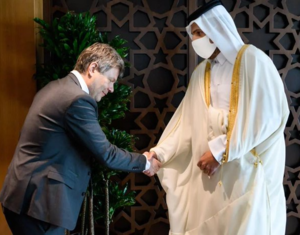
Germany is the world's fourth-largest economy and is currently the largest economy in Europe. From the 1948 currency reform until the early 1970s, West Germany experienced almost continuous economic expansion. Real gross domestic product (GDP) growth slowed down, and even declined, from the mid-1970s through the recession of the early 1980s. The economy then experienced 8 consecutive years of growth that ended with a downturn beginning in late 1992. Since unification, Germany has seen annual average real growth of only about 1.5% and stubbornly high unemployment. In 2006, Germany had its best year since 2000 with 2.7% growth; for 2007, growth was at 2.5% despite a 3 percentage point VAT hike at the beginning of the year. The government forecasts 1.7% growth in GDP for 2008. Unemployment in 2007 dropped to an annualized average of 9.0% nationwide, but it is still significantly higher—15.1%--in the German states that make up the former East Germany.
Germans often describe their economic system as a "social market economy." The German Government provides an extensive array of social services. The state intervenes in the economy by providing subsidies to selected sectors and by owning some segments of the economy, while promoting competition and free enterprise. The government has restructured the railroad system on a corporate basis, privatized the national airline, and is privatizing telecommunications and postal services.
The German economy is heavily export-oriented, with exports accounting for more than one-third of national output. As a result, exports traditionally have been a key element in German macroeconomic expansion, accounting for over half of the economic growth in recent years. Germany is a strong advocate of closer European economic integration, and its economic and commercial policies are increasingly determined within the European Union (EU). Germany uses the common European currency, the euro, and the European Central Bank sets monetary policy.
In the early-mid 2000s, Germany adopted a complex set of labor/social welfare reforms to overcome structural weaknesses of the German welfare state and to create policies more conductive to employment. Defying a skeptical German public, the coalition government of Chancellor Angela Merkel initiated additional reform measures, such as the gradual increase in the mandatory retirement age from 65 to 67—a move that would add 2.5 million to the workforce by 2030. Subsequently, however, there has been active political debate and some rollback of these labor reforms; most notably the government decided to extend the payment period of unemployment benefits to older workers in early 2008.
Fifteen years after reunification (October 3, 1990), Germany had made great progress in raising the standard of living in eastern Germany, introducing a market economy and improving its infrastructure. At the same time, the process of convergence between east and west is taking longer than originally expected and, on some measures, has stagnated since the mid-1990s. Eastern economic growth rates have been lower than in the west in recent years, unemployment is twice as high, prompting many skilled easterners to seek work in the west, and productivity continues to lag. Eastern consumption levels are dependent on public net financial transfers from west to east totaling about $13 billion per year. In addition to social assistance payments, the government will extend funds to promote eastern economic development through 2019.
The United States is Germany's second-largest trading partner, and U.S.-German trade has continued to grow strongly. Two-way trade in goods totaled $184 billion in 2007. U.S. exports to Germany were $71 billion while U.S. imports from Germany were more than $113 billion. At nearly $45 billion, the U.S.'s fifth-largest trade deficit is with Germany. Major U.S. export categories include aircraft, electrical equipment, telecommunications equipment, data processing equipment, and motor vehicles and parts. German export sales are concentrated in metalworks, motor vehicles, machinery, chemicals and heavy electrical equipment. Much bilateral trade is intra-industry or intra-firm.
Germany has a liberal foreign investment policy. For 2005, the most recent year for which statistics are available, German investment in the U.S. amounted to 233 billion euros (29% of all German foreign direct investment, or FDI; the U.S. is the number-one destination for German FDI), while U.S. investment in Germany was 45 billion euros (11.5% of all FDI invested in Germany; U.S. is third-largest source of FDI in Germany).
U.S. firms employ about 510,000 people in Germany; whereas German firms likewise employ about 746,000 people in the United States.
Despite persistence of some structural rigidities in the labor market and extensive government regulation, the economy remains strong and internationally competitive. Although production costs are very high, Germany is still an export powerhouse, and unit labor costs have decreased in the last 10 years. Additionally, Germany is strategically placed to take advantage of the rapidly growing central European countries. The current government has addressed some of the country's structural problems, with important tax, social security, and financial sector reforms.
- GDP (2007 est.): $3.1 trillion.
- Annual growth rate: (2006) 2.7%; (2007) 2.5%.
- Per capita income (PPP, 2006): $31,900.
- Inflation rate (consumer prices, 2007): 2.2%.
- Natural resources: Iron, hard coal, lignite, potash, natural gas.
- Agriculture (0.9% of GDP): Products—corn, wheat, potatoes, sugar, beets, barley, hops, viticulture, forestry, fisheries.
- Industry (29.1% of GDP): Types—car-making; mechanical, electrical, and precision engineering; chemicals; environmental technology; optics; medical technology; biotech and genetic engineering; nanotechnology; aerospace; logistics.
- Trade (2006): Exports--$1.03 trillion: chemicals, motor vehicles, iron and steel products, manufactured goods, electrical products. Major markets—France, U.S., and U.K. Imports--$844 billion: food, petroleum products, manufactured goods, electrical products, motor vehicles, apparel. Major suppliers—France, Netherlands, U.S.
The German economy showed substantial improvement in 2007 at 2.5% growth due to the effect of recent economic reforms and strong global economic growth. The export-led recovery is now filtering through to the domestic economy where private consumption has long been at a low level.
Economic History[edit]
In the 1960s, Germany had (ones of) hundreds of billions of dollars in GDP[124], being the third-largest economy, only next to the United States and the Soviet Union. However, in 1970, Germany had a $210 billion dollar economy, still being the 3rd largest economy, but being closely approached by Japan. The Germans climbed up to $475 billion in 1975, but got bumped down to fourth by the booming Japanese economy. In 1980, Germany went up to $920 billion, but still kept fourth place. Germany suffered a crash to $660 billion in 1985, still being fourth. In 1990, Germany exploded to $1.6 trillion, compared to the Soviet Union (3rd)'s $2.6 trillion. However, Germany went up to $2.6 trillion, overtaking the crashing Russian economy, and thus getting third place. In 2000, Germany went down to $1.95 trillion, still keeping third. Germany went to $2.875 trillion, being closely approached by the booming Chinese economy. Germany went to $3.3 trillion in 2015, but got bumped again to fourth, because of China's rapidly-growing economy. However, Germany grew slightly faster, when Germany got to $3.4 trillion in 2015. Germany now has a $4 trillion economy (as of 2020), but may be bumped down by 2025 by India's $3 trillion economy, which is booming dramatically.
Crisis of 2008[edit]
The worldwide Financial Crisis of 2008 hit Germany in the summer, revealing high risk policies pursued by numerous large banks looking for high rates of return outside Germany. In September the government unveiled a $635-billion bailout package for its floundering banks. Economic growth for 2009 is forecast to be an anemic 0.2%.
Automobile manufacturing is a major sector, but the financial crisis caused credit to be harder to obtain; many families postponed purchases. Auto exports fell 10% in October 2008 from October 2007; domestic sales dropped 8%. In contrast 2007 was a record year with production of 12.1 million vehicles and employment of 756,000 workers; an eighth of those jobs were created in the last five years alone.
The German economy has since recovered and the impact of the ongoing euro crisis isn't being noticed yet.
History[edit]
See German History
Sports[edit]
Association Football is the most popular sport by far, followed by Team Handball (not to be confused with American handball). Basketball and (ice) hockey play a minor role, whereas baseball and American football are, despite being organized, hardly being noticed by the general public.
The most popular non-sport-games are chess and skat, both being organized in bundesligas.
Germany was the winner of the 2014 FIFA World Cup.
The states (Bundesländer) and their capitals[edit]
(In alphabetical order)
- Baden-Wuerttemberg: Stuttgart
- Bavaria (Bayern): München
- Berlin: Berlin
- Brandenburg: Potsdam
- Bremen: Bremen
- Hamburg: Hamburg
- Hesse (Hessen): Wiesbaden
- Mecklenburg-Vorpommern: Schwerin
- Lower Saxony (Niedersachsen): Hannover
- North Rhine-Westphalia (Nordrhein-Westfalen): Düsseldorf
- Rhineland-Palatinate (Rheinland-Pfalz): Mainz
- Saarland: Saarbrücken
- Saxony (Sachsen): Dresden
- Saxony-Anhalt (Sachsen-Anhalt): Magdeburg
- Sleswick-Holsatia (Schleswig-Holstein): Kiel
- Thuringia (Thüringen): Erfurt
Famous Germans[edit]
Further reading[edit]
- Schafers, Bernha, The State of Germany Atlas (1998) excerpt and text search
- Schulte-Peevers, Andrea, et al. Lonely Planet Germany (2007) excerpt and text search
Since 1990[edit]
- Alba, Richard. Peter Schmidt, and Martina Wasmer. Germans or Foreigners?: Attitudes Toward Ethnic Minorities in Post-Reunification Germany (2004) excerpt and text search
- Berghahn, Volker Rolf. Modern Germany: society, economy, and politics in the twentieth century (1987) ACLS E-book
- Buse, Dieter K. ed. Modern Germany: An Encyclopedia of History, People, and Culture 1871-1990 (2 vol 1998)
- Kahn, Charlotte. Ten Years of German Unification: One State, Two Peoples (2000) online edition
- Larres, Klaus. Germany Since Unification: The Development of the Berlin Republic (2nd ed. 2001) excerpt and text search
Economics and society[edit]
- Siebert, Horst. The German Economy: Beyond the Social Market (2005) excerpt and text search
- Zimmermann, Klaus F. et al. Immigration Policy and the Labor Market: The German Experience and Lessons for Europe (2007) excerpt and text search
Politics[edit]
- Green, Simon, and William E. Paterson. Governance in Contemporary Germany: The Semisovereign State Revisited (2005) excerpt and text search
- Hancock, M. Donald, Politics in Europe: An Introduction to the Politics of the United Kingdom, France, Germany, Italy, Sweden (2006) excerpt and text search
- Schmidt, Manfred G. Political Institutions in the Federal Republic of Germany (2003) ISBN 0198782594
See also[edit]
- Refugees
- Atheistic Germany and alcoholism
- Atheistic Germany and loneliness
- Bavaria
- Bestiality and Germany
- Communist East Germany and alcoholism
- German Painting
- Gallery of German Masterpieces
- Prussia
External links[edit]
References[edit]
- ↑ https://www.lifesitenews.com/news/cardinal-defends-german-ban-on-abortion-advertising-in-powerful-pro-life-homily
- ↑ https://www.cia.gov/library/publications/the-world-factbook/geos/gm.html
- ↑ https://vk.com/wall-187499816_9511?ysclid=l4rfz271vi603921908
- ↑ Germany's Immigration Dilemma.
- ↑ Gebhard Schweigler, "Heidelberg is Not Harvard …and Germany is embarrassed." The Atlantic Times Dec. 2004
- ↑ Lutz Lichtenberger, "Selective Upgrades The government’s 'Excellence Initiative' grants German universities small packs of ivy seeds," The Atlantic Times Nov. 2007
- ↑ https://www.breitbart.com/europe/2022/11/13/kfc-apologizes-for-telling-germans-to-remember-nazi-kristallnacht-with-chicken/
- ↑ According to U.S. State Department, "International Religious Freedom Report 2008"
- ↑ Muslims in Europe.
- ↑ Why German public schools now teach Islam.
- ↑ [1]
- ↑ Craig Whitlock, "Germany's Merkel Reelected Easily, Will Form New Coalition," Washington Post Sept. 28, 2009
- ↑ German Culture.com; Electoral System of Germany (next to last paragraph)
- ↑ 14.0 14.1 14.2 14.3 Zeronian, Sarkis (July 5, 2016). ‘Germany’s Farage’ Becomes Leader Of Eurosceptic Alternative For Germany Party. Breitbart. Retrieved December 31, 2016.
- ↑ 15.0 15.1 15.2 15.3 15.4 What does Alternative for Germany (AfD) want?. BBC. September 5, 2016. Retrieved December 31, 2016.
- ↑ 16.0 16.1 Huggler, Justin (September 4, 2016). Germany's far-right AfD hands defeat to Angela Merkel's party in key regional vote. The Telegraph. Retrieved December 31, 2016.
- ↑ What is the Alternative for Germany?. DW. September 5, 2016. Retrieved December 31, 2016.
- ↑ Moulson, Geir (September 4, 2016). Anger over Merkel’s Syria refugee policy drives win for Alternative for Germany party. The Washington Times. Retrieved December 31, 2016.
- ↑ Nationalist Austria-Germany summit held on Zugspitze summit. BBC. June 10, 2016. Retrieved December 31, 2016.
- ↑ Multiple references:
- Tomlinson, Chris (September 25, 2017). Merkel’s Pyrrhic Victory: Worst Party Performance Since 1949 As Populist AfD Beat Expectations. Breitbart News. Retrieved September 25, 2017.
- Dettmer, Jamie (September 25, 2017). Germany Shaken by Far-right Political Earthquake. Voice of America. Retrieved September 25, 2017.
- Dettmer, Jamie (September 25, 2017). Merkel Wins Historic Fourth Term But Far-right Populists Surge. Voice of America. Retrieved September 25, 2017.
- Ridgwell, Henry (September 25, 2017). German Far-right Pledges to 'Reclaim Country' as Merkel Begins Tough Coalition Talks. Voice of America. Retrieved September 25, 2017.
- Chazan, Guy (September 24, 2017). Nationalist AfD make historic breakthrough in German elections. Financial Times. Retrieved September 25, 2017.
- ↑ Merkel Defends Open Borders Migrant Policy After Election Shock. Breitbart News. September 25, 2017. Retrieved September 25, 2017.
- ↑ Multiple references:
- Merkel Welcomes German Govt Deal Handing Her 4th Term. Breitbart News. Retrieved March 6, 2018.
- Karnitschnig, Matthew (March 4, 2018). Germany gets new government. Politico. Retrieved March 6, 2018.
- ↑ Oltermann, Philip (February 7, 2018). Germany's rightwing AfD gears up to play noisy opposition role. The Guardian. Retrieved March 6, 2018.
- ↑ Multiple references:
- Anderson, Emma (February 19, 2018). AfD surpasses SPD for first time in German poll. Politico. Retrieved February 19, 2018.
- Deacon, Liam (February 19, 2018). Poll: Germany’s AfD Populists Second Most Popular Party for First Time. Breitbart News. Retrieved February 19, 2018.
- Davis, Austin (February 20, 2018). Far-right Alternative for Germany rises as Merkel struggles for coalition. The Washington Times. Retrieved February 20, 2018.
- Williams, Thomas D. (June 25, 2018). Sunday Poll: German Populist AfD Party Hits Record High Popularity. Breitbart News. Retrieved June 25, 2018.
- ↑ https://www.npr.org/2022/03/28/1089229499/german-states-outlaw-z
- ↑ https://consortiumnews.com/2022/01/28/the-tangled-tale-of-nato-expansion-at-the-heart-of-ukraine-crisis/
- ↑ https://twitter.com/radeksikorski/status/1574800653724966915
- ↑ https://mate.substack.com/p/in-nord-stream-attack-us-sees-a-tremendous
- ↑ https://oilprice.com/Latest-Energy-News/World-News/Putin-Suggests-Creation-Of-European-Gas-Hub-In-Turkey.html
- ↑ https://subscriber.politicopro.com/article/2022/10/frances-le-maire-warns-against-american-gas-domination-00061111
- ↑ https://www.bitchute.com/video/0U1j7F1xtdeo/
- ↑ https://youtu.be/GGD8fuCs4Qc
- ↑ https://maritime-executive.com/article/gazprom-one-nord-stream-pipe-string-may-still-be-usable
- ↑ https://www.is.fi/kotimaa/art-2000009154161.html
- ↑ https://en.rua.gr/2022/10/25/mysterious-explosions-in-the-gulf-of-finland/
- ↑ A German-Russian alliance
- ↑ https://www.bitchute.com/video/tYjBcrNFIBgo/
- ↑ https://www.sueddeutsche.de/politik/afghanistan-laschet-taliban-1.5382865
- ↑ https://www.dailywire.com/news/breaking-some-americans-were-beaten-throughout-the-night-in-afghanistan-by-taliban-reporter-says
- ↑ https://www.tellerreport.com/news/2021-08-19-csu-chief-on-afghanistan--söder-wants-to-keep-the-refugee-issue-out-of-the-election-campaign.H1wDkCpsxK.html
- ↑ https://www.bbc.com/news/world-europe-58256696
- ↑ http://2012indyinfo.wordpress.com/2011/06/19/presstv-germany-slams-nato-mission-in-libya/
- ↑ https://www.nairaland.com/7107300/germany-warned-role-ukraine-conflict#112461045
- ↑ https://thepressunited.com/updates/germany-sleepwalking-into-war-with-russia-former-intel-chief/
- ↑ https://thepressunited.com/updates/germany-doesnt-trust-zelensky-der-spiegel/
- ↑ https://www.yahoo.com/news/hell-ambassador-ukraine-germany-melnyk-145405044.html
- ↑ https://kurtnimmo.substack.com/p/german-foreign-minister-we-are-at
- ↑ https://youtu.be/psl5tSj_sRo
- ↑ https://tass.com/world/1564755
- ↑ https://warnews247.gr/ystati-proeidopoiisi-gia-apofygi-polemou-germanias-rosias-oi-amerikanoi-estisan-pagida-sto-verolino/
- ↑ https://www.investmentwatchblog.com/german-food-inflation-at-21-yoy-consumer-confidence-at-a-very-low-point/
- ↑ https://catalyst.independent.org/2022/01/28/germany-shutters-nuclear/
- ↑ https://www.cnbc.com/2022/06/20/ukraine-war-germany-turns-to-coal-as-russia-throttles-gas-supplies.html
- ↑ https://oopstop.com/the-bundestag-called-sanctions-against-russia-hara-kiri-for-germany/
- ↑ https://www.theamericanconservative.com/german-foreign-minister-let-my-people-freeze/
- ↑ https://theconservativetreehouse.com/blog/2022/09/20/auchtung-producer-prices-in-germany-jump-7-9-percent-in-august-to-45-8-percent-highest-jump-in-prices-in-history-of-german-economy/
- ↑ https://theconservativetreehouse.com/blog/2022/09/16/panicked-germany-seizes-russian-energy-company-rosneft-uses-national-trusteeship-to-control-oil-refinery-the-current-economic-outlook-of-europe-full-state-control-of-critical-energy-production/
- ↑ https://youtu.be/vbM7-r2VaMc
- ↑ https://www.aa.com.tr/en/russia-ukraine-war/russia-ready-to-switch-on-nord-stream-ii-pipeline-tomorrow-if-europe-gives-green-light/2678820
- ↑ https://www.thegatewaypundit.com/2023/02/independent-evidence-video-confirms-key-part-sy-hershs-report-attack-nord-stream-2/
- ↑ https://www.npr.org/2022/03/28/1089229499/german-states-outlaw-z
- ↑ https://www.memri.org/reports/liberal-post-modern-life
- ↑ https://www.nairaland.com/7107300/germany-warned-role-ukraine-conflict#112461045
- ↑ https://telegra.ph/Briefing-on-the-results-of-the-analysis-of-documents-related-to-the-military-biological-activities-of-the-United-States-on-the-t-05-11
- ↑ https://deutsche-wirtschafts-nachrichten.de/512679/Lafontaine-gegen-Biden-Die-USA-und-ihre-westlichen-Vasallen-samt-ihrer-Propaganda-Medien-sind-nicht-zum-Frieden-faehig
- ↑ https://www.rt.com/russia/553975-germany-military-biological-ukraine-zakharova/
- ↑ https://youtu.be/JWbb1GDmtVE
- ↑ https://www.firstpost.com/world/germany-approves-delivery-of-14-leopard-2-tanks-to-ukraine-12047882.html
- ↑ https://www.politico.eu/article/germany-send-leopard-tanks-ukraine-russia-war-rheinmetall/
- ↑ https://www.adl.org/resources/hate-symbol/1488
- ↑ https://youtu.be/lt0iLMoG7XU?t=1556
- ↑ The Libyan Failure: Obama and Clinton’s Forgotten War, Luis Durani, Modern Diplomacy, May 13, 2016
- ↑ Hillary Clinton and the Syrian Bloodbath, Jeffrey Sachs, Huffington Post, Feb 15, 2016
- ↑ Human Rights Watch World Report 2013, pp. 580-587; 609-617. www.hrw.org
- ↑ The Disintegration of European Security: Lessons from the Refugee Crisis, By Fabrizio Tassinari, Center for Complex Operations PRISM Volume 6, Number 2, July 18, 2016
- ↑ Delingpole, James (September 16, 2018). Delingpole: ‘Civil War Is Coming to Europe’ Warns German Politician. Breitbart News. Retrieved September 16, 2018.
- ↑ The New Europeans, Robert Kunzig, National Geographic, October 2016
- ↑ Delcker, Janosch (October 2, 2017). Angela Merkel’s new refugee dilemma. Politico. Retrieved October 3, 2017.
- ↑ Hale, Virginia (March 12, 2018). Merkel Effect: Thousands of Migrants Jet to Germany from Poorer EU Nations. Breitbart News. Retrieved March 12, 2018.
- ↑ Multiple references:
- Tomlinson, Chris (August 2, 2017). Nearly One Quarter of Germans Now Have a Foreign Background. Breitbart News. Retrieved August 2, 2017.
- Immigrant population hits new high in Germany. Reuters. August 1, 2017. Retrieved August 4, 2017.
- Tomlinson, Chris (October 24, 2017). Over One in Five German Residents Come from a Foreign Background. Breitbart News. Retrieved October 24, 2017.
- ↑ Lane, Oliver JJ (April 12, 2018). Approaching 13 Per Cent of All German Residents Are Foreign Born. Breitbart News. Retrieved April 13, 2018.
- ↑ Tomlinson, Chris (August 31, 2017). Prosecutors Have Rejected 1,000 High Treason Charges Against Merkel For Migrant Crisis Since 2015. Breitbart News. Retrieved August 31, 2017.
- ↑ Tomlinson, Chris (January 17, 2018). Germany Took Nearly 200,000 Asylum Seekers in 2017. Breitbart News. Retrieved January 17, 2018.
- ↑ Friedman, Victoria (December 7, 2018). Germany Most Prolific at Attempting to Send Migrants to Other EU Countries. Breitbart News. Retrieved December 7, 2018.
- ↑ Douglas, Elliot (December 1, 2019). Germany: Thousands of migrants return after deportation, report says. Deutsche Welle. Retrieved December 8, 2019.
- ↑ Germany Toughens Swiss Border Against Illegal Migrants. Deutsche Welle (August 21, 2016). Retrieved on February 11, 2017.
- ↑ Germany Tightens Border Controls with Switzerland to Stop Illegal Immigrants, Says Swiss Minister. The Independent (August 2016). Retrieved on February 11, 2017.
- ↑ Germany Begins Border Controls in Lead up to G20 Summit. Breitbart News. June 12, 2017. Retrieved June 12, 2017.
- ↑ Tomlinson, Chris (January 17, 2018). Mass Migration Now Sole Cause of Population Growth in Germany. Breitbart News. Retrieved January 17, 2018.
- ↑ Hale, Virginia (June 29, 2017). Frankfurt Becomes First German City Where Natives Are Minority. Breitbart News. Retrieved June 29, 2017.
- ↑ Tomlinson, Chris (January 25, 2018). ‘Mohammed’ on Course to be Most Popular Baby Name in Germany. Breitbart News. Retrieved January 25, 2018.
- ↑ Tomlinson, Chris (May 3, 2019). Mohammed Number One Name for Baby Boys in Berlin. Breitbart News. Retrieved May 3, 2019.
- ↑ Kirkwood, R. Cort (May 6, 2019). Mohammed Is Taking Over Europe: Name Most Popular in Berlin, Elsewhere. The New American. Retrieved May 6, 2019.
- ↑ Tomlinson, Chris (March 29, 2018). German Childbirths Rise Due to Mass Migration. Breitbart News. Retrieved March 29, 2018.
- ↑ Migration from eastern Europe raises German population to record high. Reuters. July 16, 2019. Retrieved July 16, 2019.
- ↑ Zindulka, Kurt (November 5, 2019). Germany: Over Third of Population Will Have Migrant Roots in 20 Years. Breitbart News. Retrieved November 5, 2019.
- ↑ Duke, Selwyn (November 8, 2019). The Great Replacement: “Foreigners” Will Soon be More Than 1/3rd of Germany. The New American. Retrieved November 8, 2019.
- ↑ Tomlinson, Chris (April 13, 2018). More Than Half of German Welfare Recipients Come from Migrant Backgrounds. Breitbart News. Retrieved April 13, 2018.
- ↑ Tomlinson, Chris (July 31, 2018). Study: Turkish Background Germans Increasingly Feel Closer Bond to Turkey Than Germany. Breitbart News. Retrieved July 31, 2018.
- ↑ A study by the Univerity of Munster found that more than half of Turkish immigrants put Islam above German law. Study: Large number of Turks in Germany put Islam above the law, Daniel Pelz, Deutsche Welle, 16 June 2016
- ↑ Islamic Government, A.H. Qasmi, Gyan Publishing House, Jan 1, 2008, p. 81
- ↑ Laws Criminalizing Apostasy. Hanibal Goitom, Library of Congress Global Legal Research Center, MY 2024
- ↑ Hale, Virginia (July 19, 2017). Mass Migration Drives ‘Enormous’ Rise in FGM Cases to 60,000. Breitbart News. Retrieved July 19, 2017.
- ↑ Leahy, Michael Patrick (July 26, 2017). Active TB Increased 30 Percent in Germany In 2015, Year of Massive Immigration. Breitbart News. Retrieved July 26, 2017.
- ↑ Tomlinson, Chris (September 4, 2017). German Authorities Tipped off to over 330 War Criminals Among Asylum Seekers. Breitbart News. Retrieved September 4, 2017.
- ↑ Hale, Virginia (September 25, 2017). Almost Half of Crimes in Berlin Committed by Migrants. Breitbart News. Retrieved September 25, 2017.
- ↑ Montgomery, Jack (November 18, 2017). Germany: 440,000 Migrant Drifters Fuel Surge in Homelessness. Breitbart News. Retrieved November 18, 2017.
- ↑ Hale, Virginia (February 5, 2018). German Politicians ‘Alarmed’ at Scale of Anti-Christian Hate Attacks. Breitbart News. Retrieved February 5, 2018.
- ↑ Kent, Simon (August 14, 2018). Anti-Semitic Crime in Germany Soars by 10 Percent over First Half of 2018. Breitbart News. Retrieved August 14, 2018.
- ↑ Multiple references:
- Bowden, John (May 26, 2019). German official warns country's Jews against wearing Kippah amid rising anti-Semitism. The Hill. Retrieved May 26, 2019.
- Kent, Simon (May 26, 2019). ‘Shocked’ Israel President Warns Jews in Germany After Kippah Threats. Breitbart News. Retrieved May 26, 2019.
- ↑ Multiple references:
- Shaw, Adam (January 3, 2017). Refugee influx into Germany fueled violent crime surge, report finds. Fox News. Retrieved January 3, 2018.
- Tomlinson, Chris (January 4, 2018). German Government: Rise in Violent Crime Is Linked to Mass Migration. Breitbart News. Retrieved January 4, 2018.
- Jasper, William F. (January 5, 2018). Merkel Exposed: Germany, France Reeling Under Refugees' Crime Waves, Welfare Costs. The New American. Retrieved January 5, 2018.
- ↑ Tomlinson, Chris (June 24, 2018). Investigation Finds Migrant Career Criminals Routinely Protected from Deportation. Breitbart News. Retrieved June 24, 2018.
- ↑ 113.0 113.1 Tomlinson, Chris (January 11, 2018). Survey: Underlying Sympathy for Radical Islamic Extremism in German Schools. Breitbart News. Retrieved January 11, 2018.
- ↑ Tomlinson, Chris (March 9, 2018). German Study Finds Foreigners Twice as Likely to Be Suspects in Crimes. Breitbart News. Retrieved March 9, 2018.
- ↑ Enoch (September 5, 2018). The number of Germans killed by foreigners highest in many years. Voice of Europe. Retrieved September 8, 2018.
- ↑ Lane, Oliver JJ (September 26, 2018). Number of Immigrants Referred To German Security Services Rose Fourfold in 2017. Breitbart News. Retrieved September 27, 2018.
- ↑ German city bans new refugees amid anti-migrant mood. Fox News. January 21, 2018. Retrieved January 21, 2018.
- ↑ Tomlinson, Chris (January 22, 2018). German City Banishes Asylum Seeker After Knife Attack. Breitbart News. Retrieved January 22, 2018.
- ↑ Hale, Virginia (March 13, 2019). Germany: Migrant Crimes Concealed to ‘Avoid Stirring Up Prejudice’. Breitbart News. Retrieved March 14, 2019.
- ↑ New migrants put Germany's established crime gangs under pressure. Deutsche Welle. November 25, 2019. Retrieved December 1, 2019.
- ↑ https://www.zerohedge.com/economics/china-outraged-after-largest-german-newspaper-accuses-beijing-starting-coronavirus
- ↑ http://enformtk.u-aizu.ac.jp/howard/weimar_ruling/
- ↑ https://youtu.be/3BU3MudND8Q
- ↑ https://en.wikipedia.org/wiki/List_of_countries_by_largest_historical_GDP
Sources[edit]
Categories: [German History] [Germany] [NATO Members] [Russia-Ukraine War] [Christian-Majority Countries]
↧ Download as ZWI file | Last modified: 02/25/2023 21:04:00 | 725 views
☰ Source: https://www.conservapedia.com/Germany | License: CC BY-SA 3.0
 ZWI signed:
ZWI signed: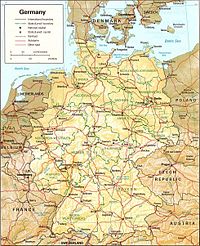






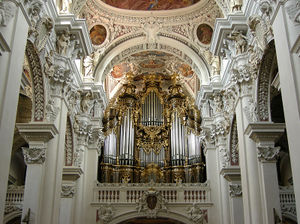


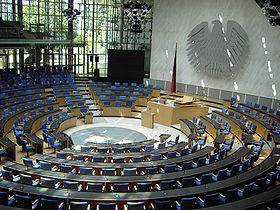


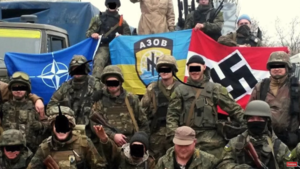

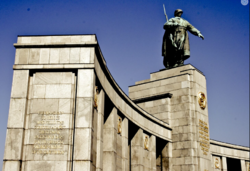
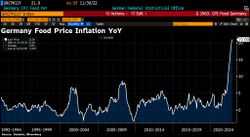




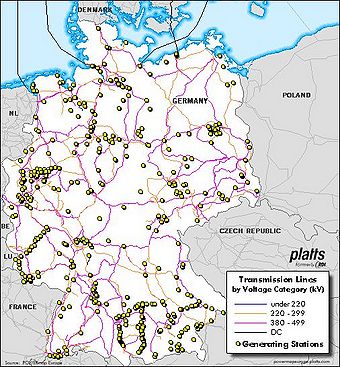
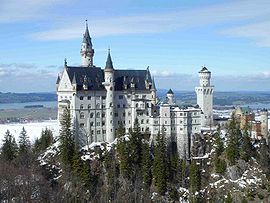
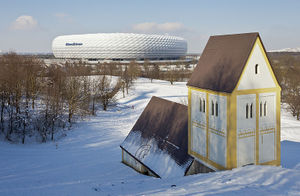

 KSF
KSF